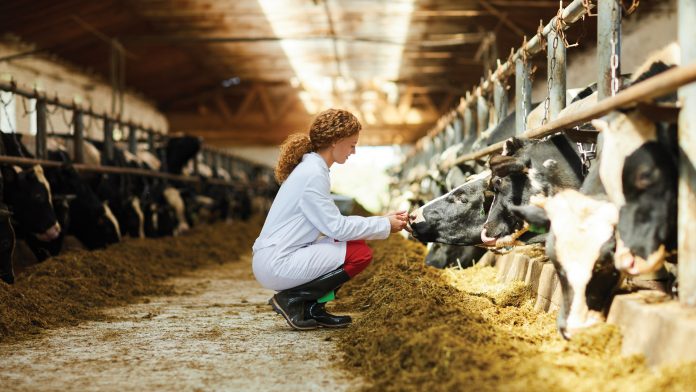Following a raft of safety scandals on Dutch farms, Member States must work together to enforce standards and provide quality to consumers.
Improving food safety standards in agriculture
Following the “sick cow” scandal in Poland and the recent call for an investigation into the Dutch food safety body following allegations of sick cows being slaughtered in the Netherlands, as well as EU reforms on agriculture set to come into place, food safety within agriculture is high on the agenda across the continent.
In recent years a number of slaughterhouses have been convicted of putting sick cattle up for slaughter and questions have now been raised around the Dutch Food and Wares Authority’s (NVWA) ability to enforce standards. Innovation News Network spoke to Dutch politician Tjeerd de Groot, who has spent his 30-year career working in the field of agricultural affairs and food, about the policy landscape surrounding food safety and what can be done to improve standards in agriculture. Mr de Groot is a parliamentarian for D66, is former director in the dairy industry and has worked as an agricultural councillor at the Dutch embassy.
What instances of unsafe food production in agriculture have we seen in the Netherlands recently?
In recent years, undercover journalists have uncovered poor standards at European farms that claim to show sick animals being dragged to slaughter, raising concerns for quality and health standards in the industry.
Some of the biggest problems the Netherlands has faced so far have included salmonella at the fish processing firm Foppen in 2012, the infamous scandal where horse meat was being sold as beef in 2013; and in 2017 there was fipronil found in eggs. In the last two cases, we see that it is very difficult as a government to protect against fraud. We also see that farmers and processors of food find it difficult to really take responsibility for food safety, as they are obliged to do according to EU food legislation.
What is the government doing to investigate instances of unsafe food production and how can structural problems in animal welfare be handled better?
The NVWA should supervise the food production chain. Its activities are partly aimed at the primary sector, but rarely at the effectiveness of the entire food production chain to actively manage food safety. This means that the NVWA fills the gaps of the food production chain.
Private quality schemes which are used by the chain must meet the requirements set by European Law. In the Netherlands, a taskforce was founded in 2013 after the horse meat affair by the cabinet, through which both the governmental and business sectors could work together in restoring consumer faith in our food safety by closing the gaps in the food production chain, which were not covered by the private quality schemes.
In cooperation with the NVWA, this taskforce has created specific criteria for private quality schedules, intended to support the private securing of food safety. Transparency and information exchange are an important part of these criteria. These quality systems were included in the initiative of Ketenborging.nl. This platform offers businesses in the food sector an overview of recognised quality schedules that meet these criteria.
However, so far, no Dutch private quality scheme has been accepted by the Ketenborging.nl platform, while multiple private quality systems keep being used in the Dutch food sector. Private quality systems are of great importance for the sector. These quality systems should follow specific criteria which will maintain the necessary security of our food safety.
66 therefore requests the Dutch ministers of Agriculture, Nature and Food Quality (LNV) and Minister of Health, Welfare and Sport (VWS) ensure that participation in the ketenborging.nl platform is mandatory for private quality systems. In five years we have had no supervision or progress. That is something which should be improved in the Netherlands rather than the explanation about oversight and our future need of improvement.
What can governments do to better ensure food safety standards in agriculture, while keeping in line with EFSA regulations and advice?
Information sharing is of crucial importance and that is something the Netherlands should always have high standards for. Any negative signals concerning food safety need to be handled as quickly as possible. There needs to be more attention paid to this in the EU. We need to make sure that food production companies take responsibility for ensuring high food safety standards in agriculture.
There should be a tight collaboration between European Member States to ensure food safety for European citizens. Also, fast communication to stakeholders in those situations is key.
Can new technologies contribute to food safety standards? Can technology contribute to more efficient management of supply chains and tracking systems?
Technology has the potential to help authorities utilise data and data sharing systems that can lead to cohesive and effective monitoring of food safety standards across the board. Investing in technological solutions can make monitoring both faster and more accurate.
Blockchain technology could help us significantly with the providing and retrieving of new information in our food chain. New technology such as this can also help us find out what the cause of any problems that occur might be.
Tjeerd de Groot
D66
+31 (0)70 318 30 66







